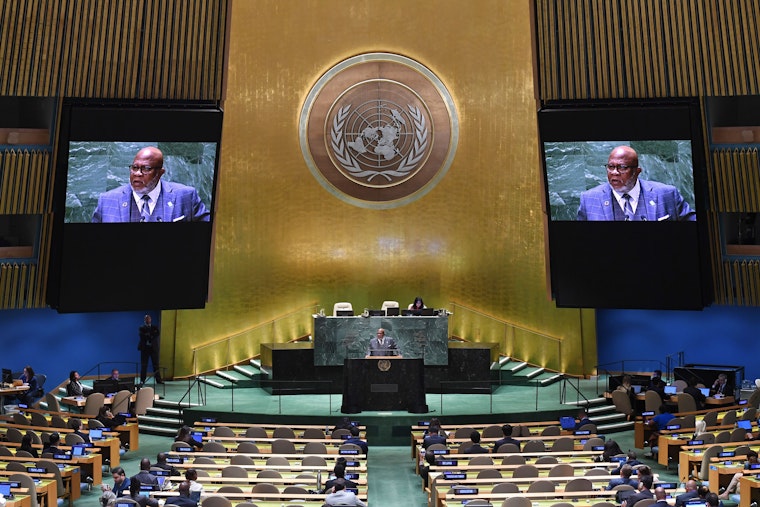UN Moves Toward a Global Treaty on Tax
By Alvin Mosioma & Maryam H'madoun

According to Tax Justice Network, a group that advocates for just and equitable global taxation policies, the countries across the world are on track to lose $4.8 trillion in potential tax revenues over the coming 10 years—due to the use of tax havens by international corporations and wealthy individuals.
It is estimated that the African continent may be losing the most in terms of illicit financial flows, tax avoidance, and evasion—almost 90 billion dollars annually—hampering its ability to pursue sustainable development. But the problem has greatly affected countries in Latin America, the Middle East, and Asia as well.
These grim realities continue while developing nations struggle with a range of economic burdens—including indebtedness and the growing costs of climate crisis.
But can things change? We believe they can, which is why we are among those who are celebrating a major step forward at the United Nations at the end of November—when the General Assembly passed a resolution proposed by Nigeria to establish a “framework convention on international tax cooperation”—a step toward a global tax treaty.
This UN resolution chips away at an international financial architecture that is heavily skewed toward the interests of the global north powers that designed it. It challenges the dominance of the Paris-based Organization for Economic Co-operation and Development (OECD) that for the past 60 years has been devising tax rules and setting standards that cater to multinational corporations based mostly in G7 countries to the detriment of their own populations, but more so to those of developing economies.
The resolution was supported by 125 states, with 48 voting against, and 9 abstentions (including 4 of the 38 OECD members—Iceland, Norway, Mexico, and Turkey). This success at the UN was brought about because of many years of dedication by advocacy groups, many of them supported in part by the Open Society Foundations, that have been on the forefront of the campaign for the establishment of UN tax convention. This movement has been most powerful in Africa, which was reflected in the leadership of the Africa Group of UN members in advancing this resolution.
Civil society groups also played an important role in other regions in galvanizing their governments. Notably, 14 out of the 15 members of the Caribbean Community, the political and economic grouping of Caribbean states, voted for the resolution—despite past lack of interest, and despite the intense arm twisting from those who want things to stay the way they are.
In contrast, the European Union, the United Kingdom, and the United States expressed strong opposition. They are expected to further entrench their positions to avoid ceding power and maintain control over the allocation of taxing rights, as this resolution moves further to the Fifth Committee and then the General Assembly.
Taxation is an increasingly important fiscal tool, not only for revenue collection and redistribution, but also in climate, industrial, anti-monopoly, and broader economic justice policies and strategies. It is therefore not surprising that control over decision-making in this area is and will continue to be heavily contested.
Nevertheless, what stood out now, is the incredible unity displayed between countries of the Global South despite the pressure mounted to vote differently.
Open Society’s grant making has supported advocates for tax justice around the world, but it also invested heavily in South-South exchange and collaboration. We believe these efforts may have contributed to the stronger Global South alignment in this vote.
We hope this critical momentum is sustained to see the systemic change through until the end, with the successful development of a UN tax body that delivers tax justice for developing countries and the world.

Alvin Mosioma is acting co-director of Equity.
Maryam H’madoun is a senior program officer for Equity at the Open Society Foundations.


